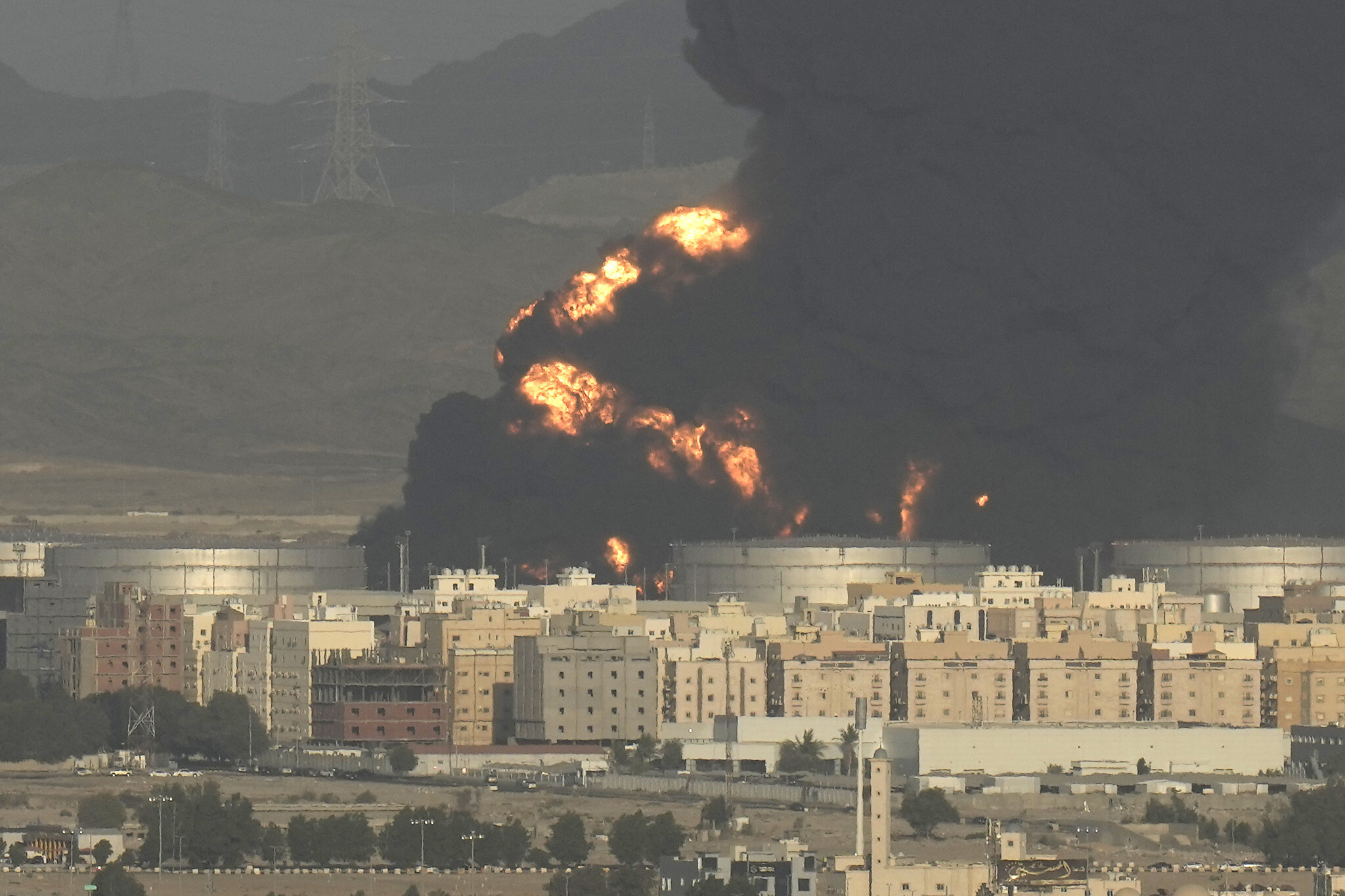 |
| Oil price on September, 25 - www.oilfutures.co.uk |
The seemingly unprovoked attack by the Houthi rebels on a contingent of Bahraini soldiers, who had been guarding the southern border between Saudi Arabia and Yemen, appeared to have taken the entire Middle East by surprise.
As a result, an officer and a soldier have died and there have been more casualties as well.
The Houthis have used a drone for the attack that has the potential to a finger being directed at a regional power by the Arab military coalition that had been formed to fight the Yemeni rebel group.
The escalation took place, just after a delegation of Houthi rebels met the Saudi authorities in Riyadh, the capital of the Kingdom, last week - the first direct contact between the two warring factions since hostilities began in 2015; both sides said talks were cordial and mood was optimistic.
There have been widespread condemnation over the attack by the Arab nations in the Middle East and of course, the US.
In response, the Houthis say that there had been deaths of twelve of its own soldiers near the border in question in the past month; they say the ceasefire violations are regrettable.
The Houthis had been targeting the Saudi oil facilities almost daily up until both sides agreed to an uneasy peace deal, brokered by the UN, a year ago.
 |
| Saudi oil facility on fire by drones fired by the Houthis: credit Times of Israel |
The Houthis used to send explosive-laden drones and crude missiles across the border against the Saudi targets. The Saudi-led coalition, in turn, carried out bombing raids, which, more often than not, resulted in collateral damage - a development that put immense pressure on the Western arms suppliers to halt the supply of weapons.
The brazen attack by the Houthis, supported both morally and materially by Shite dominated Iran, calls into question the recent diplomatic thaw between the former and Sunni Arab nations in the region, mainly Saudi Arabia and the UAE.
Iran has already expressed its displeasure over the moves to initiate diplomatic relations between Saudi Arabia and Israel, the arch enemy of Iran. Iranian president is already on record, saying that it will fail - in an interview with the CNN.
Since Israel is hell bent over in scoring a major diplomatic coup, in direct proportion, Iran appears to be getting uneasy over the move. If Israel succeeds with the full blessings of the US on this mission, more Muslim nations will come forward to begin diplomatic relations with the Jewish state, as predicted by the Israeli foreign minster at the UN recently.
Moreover, the dispute between the UAE and Iran over three islands in the Persian Gulf has reignited in the recent months despite restoring the diplomatic ties between the two countries.
In this context, Iran may try to maintain its strategic position by using its influence over the militant groups by supplying them with weapons and money - much to the annoyance of the Arab countries in the region and the US.
The members of the Arab coalition against the Houthis have already said that they will choose the time and place for what they call, 'an appropriate' response - a coded phrase for a bombing raid.
The new development, if not handled diplomatically, has the potential to disrupt the oil supplies - once again.
It is not the material loss as such that concern the oil markets. On the contrary, the sentiment can cause ripples in the markets; it is the sentiment that is the king in the commodity markets - anyway.
HA






